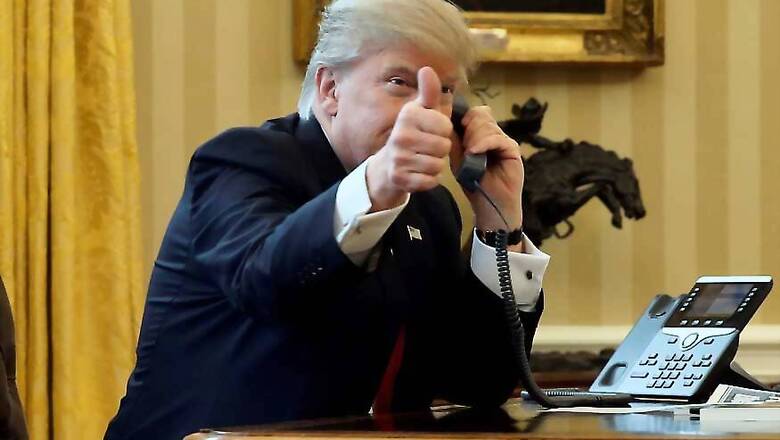
views
President Donald Trump, who blasted Hillary Clinton for using a personal email server, might be a walking magnet for eavesdropping and malware if he is using an unsecured cellphone to chat with foreign leaders.
Trump has been handing out his cellphone number to counterparts around the world, urging them to call him directly to avoid the red tape of diplomatic communications. The practice has raised concern about the security and secrecy of the U.S. commander-in-chief's communications.
In today's world of cyber espionage, cellphone security experts say such a policy is not only unorthodox, but dangerous. Voice calls can be intercepted. A cellphone's signals to nearby phone towers can give up its precise location. Even cellular networks are vulnerable. And knowing someone's number makes it easier to infect a phone with malware.
``Hillary Clinton's email server was like Fort Knox compared to Trump just carrying around a regular cellphone,'' said Andrew McLaughlin, former deputy chief technology officer for the Obama administration. ``That's how bad the vulnerabilities are.''
Running against Clinton for the presidency, Trump repeatedly criticized his rival for using a non-government email account while she was secretary of state. Trump argued that Clinton should not be given access to classified information because she would leave it vulnerable to foreign foes.
But Trump may be running into problems of his own.
He has urged the leaders of Canada and Mexico to call him on his cellphone, according to former and current U.S. officials with direct knowledge of the practice. Trump, who disdains working through official channels, also exchanged numbers with French President Emmanuel Macron when the two spoke after France's election earlier this month, according to a French official, who would not comment on whether Macron intended to use the line.
All the officials demanded anonymity because they were not authorized to reveal the conversations. Neither the White House nor Trudeau's office responded to requests for comment.
Trump administration officials also wouldn't say what type of cellphone the U.S. president was using or describe any security upgrades it might include.
``I think it's a really bad idea,'' said Matthew Green, who teaches at the Johns Hopkins Information Security Institute and previously served as senior technical staff member at AT&T Laboratories.
Green said cellular phones are not terribly secure and the communications traverse a cellular network with well-known vulnerabilities. He was referring to the Signaling System 7, which links mobile phone networks. If a phone has been hacked, a person can listen and monitor the device even if the president is using an encrypted phone.
Rep. Ted Lieu, a California Democrat with a degree in computer science, sent a tweet to the president Wednesday: ``Please do not use your cellphone for sensitive calls. SS7 flaw in networks allows foreign intel to monitor conversations.''
When former President Barack Obama wanted to continue using his Blackberry , U.S. security officials gave him a modified one that allowed him limited use with enhanced security. The White House said at the time that Obama was permitted to keep his Blackberry through a compromise that allowed him to stay in touch with senior White House staffers and a small group of personal friends.
``What we ended up with was a military-grade, encrypted phone that had the microphone ripped out,'' said McLaughlin, who thinks the White House communications office has prevailed upon Trump to use some kind of phone with enhanced security.
He suggested one with strong encryption, disabled location services and one that talks with a military network instead of commercial cell services.
McLaughlin also said it's possible that the number that Trump is giving to world leaders rings to someone else's phone, who then transfers the call to the president, a system that could protect Trump from anyone trying to monitor his communications.




















Comments
0 comment